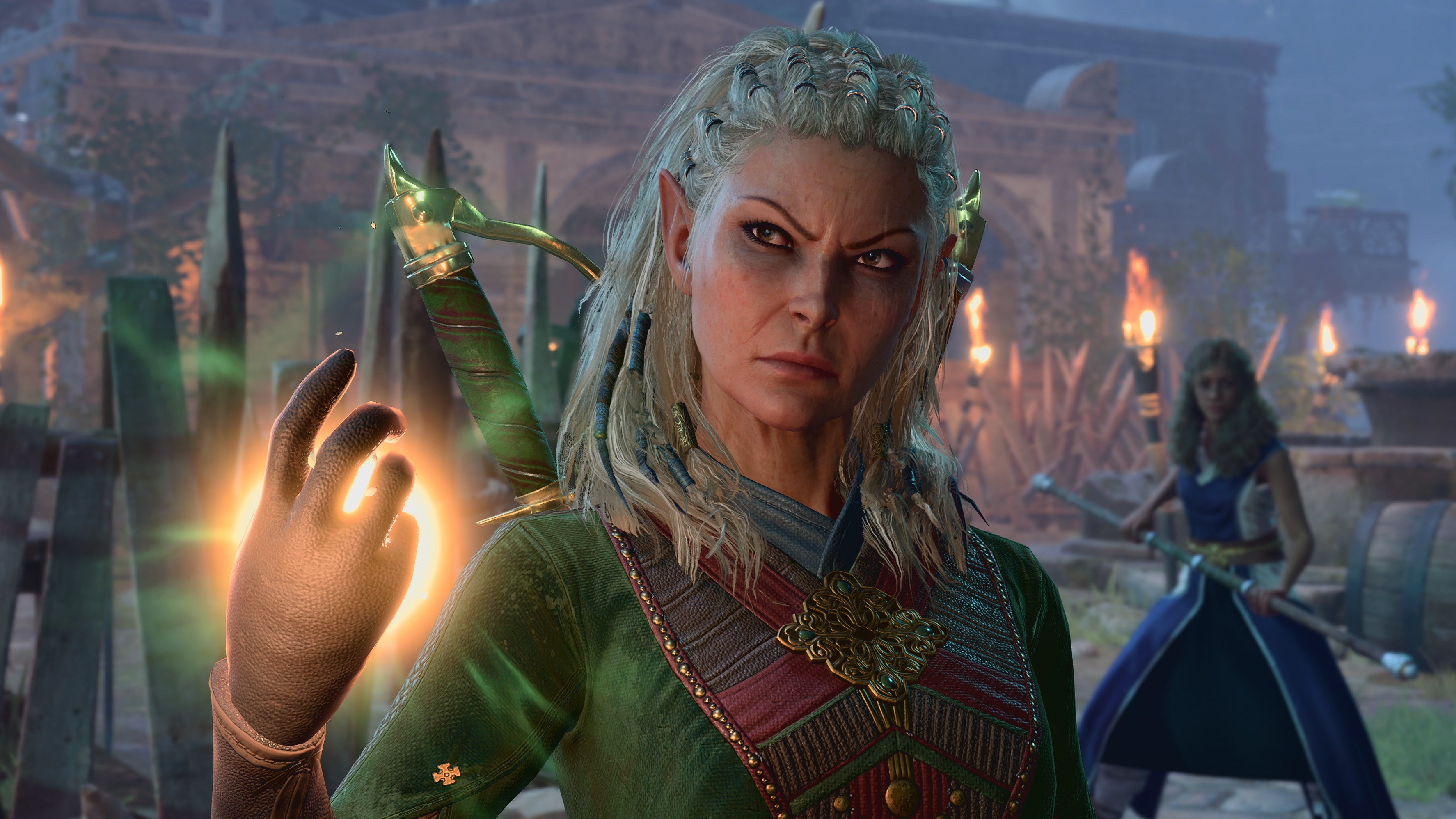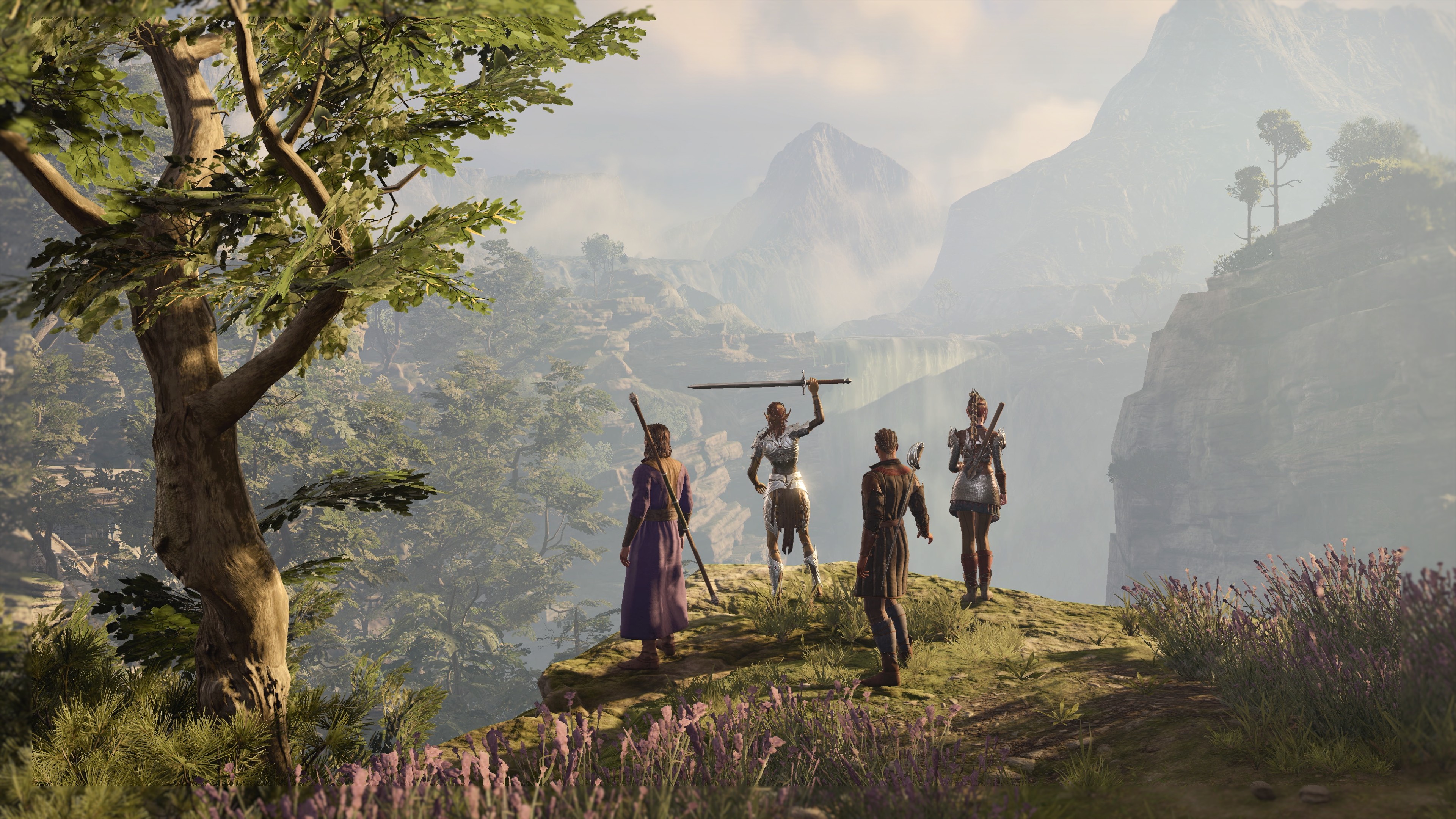Baldur's Gate 3 is PC Gamer's highest scoring game in 16 years. Here's why
It's been a long time since we've been this excited by a new PC release.

Yesterday, Fraser called me into an emergency meeting. It was about his Baldur's Gate 3 review.
"I'm thinking of giving it 97."
We talked it out, he explained his reasoning, and I reminded him of what that score would mean for the history of PC Gamer—a publication that, in just a few months, will be 30 years old. After that talk, I was convinced. Baldur's Gate 3 has been awarded 97%.
How momentous Baldur's Gate 3's score is depends on which lineage of PC Gamer's history you follow. It is, in one sense, the highest score we've awarded in 16 years. In another sense, though, it is the highest score we have ever awarded.
PC Gamer has been a global team for a little over a decade. The US and UK editions of the magazines are unified. But in the 20-odd years before that, the US and UK editions of PC Gamer once operated with different editorial teams, different articles and, most importantly for this discussion, different review scores.
For PC Gamer US, Baldur's Gate 3 joins some illustrious names. Before today, only five games had scored over 96:
- Sid Meier's Alpha Centauri, 1999 [98]
- Half-Life 2, 2004 [98]
- Crysis, 2007 [98]
- Sid Meier's Civilization II, 1996 [97]
- Half-Life, 1998 [97]
For PC Gamer UK, things are much simpler. Baldur's Gate 3 stands alone. In nearly 30 years of reviewing PC games, none have ever received above 96:
The biggest gaming news, reviews and hardware deals
Keep up to date with the most important stories and the best deals, as picked by the PC Gamer team.
- Sid Meier's Civilization II, 1996 [96]
- Quake II, 1997 [96]
- Half-Life, 1998 [96]
- Half-Life 2, 2004 [96]
Both lineages are important to our history, although, as UK editor-in-chief I will admit to a slight bias. Ever since PC Gamer became a single editorial entity in the early 2010s, the highest scoring games have been Minecraft, the free-to-play re-release of Team Fortress 2, Spelunky and, eight years ago, my verdict of Kerbal Space Program. Since 2010, no game has been awarded higher than 96. Until today.
Why one point matters
The scarcity of top scores over our decades in the industry is a deliberate editorial move. What any particular review score means is going to be different for each individual writer, albeit filtered through the deliberately interpretive guidelines of the PC Gamer scoring guide. As written, our current score guide—last updated in 2014—is designed to make 90+ scores feel like a big deal. If you merely love a game, it should get a score between 80 and 89. If you want to award a 90 or above, it needs to be something more.
90%-94% A compelling recommendation for most PC gamers. Important to PC gaming as a whole, and likely ahead of its time. Eg, Portal 2, The Witcher 3
95%-98% Absolutely brilliant. This is far and away one of the best games we’ve ever played, and we recommend it to the world. Eg, Half-Life 2, Minecraft, Kerbal Space Program
99%-100% Advances the human species. Provides a feeling not dissimilar to the ending of Stanley Kubrick’s 2001: A Space Odyssey.
That latter category is a deliberate nod to our history, both in the US and the UK, of having never scored a game 99 or above. I assume, originally, this was meant as a way to recognise that no game is ever truly perfect. Personally, though, I see us as critics, not mathematicians. There is no formula for arriving at the perfect score—X points added for stable framerate; X points deducted for overzealous microtransactions. The text is the review, and the score exists to punctuate that text—to coalesce a writer's thinking towards a definitive conclusion. It's inherently silly, but we take it very seriously regardless.
I think the PC Gamer team intuitively understands that, based on the scores we've awarded before, the top end of the scale is meant for games that we don't just love, but that speak to what we hold important as an editorial collective.
Baldur's Gate 3 takes so many of the elements of our previous top-scoring games, and folds them into an astonishing package.
When I awarded a 96% score to Kerbal Space Program back in 2015, it wasn't just because I loved it—although obviously I did. It was because it was a game that felt like it did justice to the concept of an early access release; one that nailed every goal it set out to achieve, and provided a completely new spin on self-directed, sandbox creation—bolstered massively by an already entrenched modding community. When Spelunky scored 96% back in 2013, it was in part in recognition of just how much the PC Gamer team had been captivated by the original Game Maker version released four years earlier, and how the new version set a new bar for procedural generation and systemic interactions.

Fraser justifies Baldur's Gate 3's score in just the second paragraph of his review.
"It's my dream game: the best parts of Ultima, Baldur's Gate, Planescape: Torment, Arcanum: Of Steamworks and Magick Obscura and Divinity: Original Sin. But it also does so much more than tap into the RPG Greatest Hits, finding a way to unite disparate philosophies like cinematic storytelling, unhinged sandbox mayhem and tabletop-style roleplaying. Yes, it says, you can have your cake and eat it too."
Baldur's Gate 3 takes so many of the elements of our previous top-scoring games, and folds them into an astonishing package. It has made perfect use of its time in early access. It has a depth and breadth that does justice to—arguably surpasses—the CRPGs that came before it. It has the chaotic energy of an immersive sim, where rules interact in ways that constantly surprise and delight you. And it does it all with a presentation that feels modern and lavish.
It's also captivated the PC Gamer team at large—CRPG fans and newcomers alike. Our Slack is a rolling ticker of anecdotes about the clever ways people have completed quests, or the effects that different choices have made. Our meetings are regularly derailed by arguments about the best companions, or stories about inventive and hilarious combat encounters. Even the people who struggled at first—the ones who ended up rolling new characters after hours trying to understand its systems—have since become hooked. In a time where gaming has arguably never been more fragmented into niches, it reminds us of what it felt like to play games 10 or 20 years ago, to have everyone experiencing different versions of the same story at the same time.
In recent weeks, there has been a debate online over whether Baldur's Gate 3 can realistically be considered as a new baseline for RPGs. Do the unique circumstances of its creation make it an almost impossible thing for a development team to match? Whether you agree with that or not, Baldur's Gate 3 does, right now, feel like a singular achievement. That's why we've given it a singular score—one that, depending on how you view it, we either haven't given in 16 years, or have never given before. It could well be a long time until we see a game that scores this highly again. Fingers crossed that it's not.

Phil has been writing for PC Gamer for nearly a decade, starting out as a freelance writer covering everything from free games to MMOs. He eventually joined full-time as a news writer, before moving to the magazine to review immersive sims, RPGs and Hitman games. Now he leads PC Gamer's UK team, but still sometimes finds the time to write about his ongoing obsessions with Destiny 2, GTA Online and Apex Legends. When he's not levelling up battle passes, he's checking out the latest tactics game or dipping back into Guild Wars 2. He's largely responsible for the whole Tub Geralt thing, but still isn't sorry.